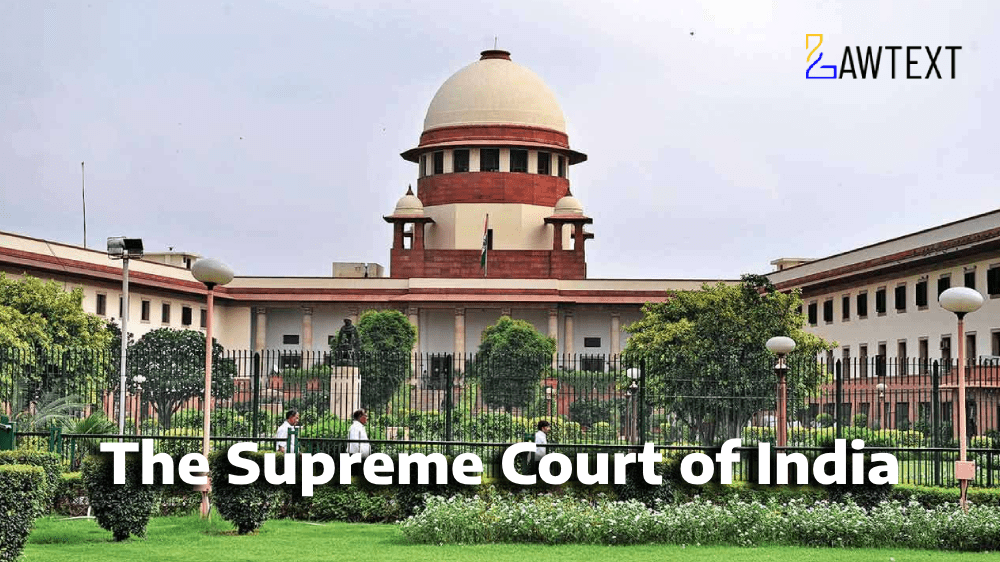CASE NOTE & SUMMARY
The Supreme Court examined whether a High Court can grant interim orders in a second appeal without formulating substantial questions of law under Section 100 of the Civil Procedure Code (CPC). It was held that the absence of such formulation invalidates the jurisdiction to pass interim orders, reaffirming procedural mandates and preserving legal consistency.
The Supreme Court clarified that granting interim relief in second appeals without adhering to Section 100 CPC's requirement to frame substantial questions of law is procedurally improper and legally untenable.
Acts and Sections Discussed:
- Code of Civil Procedure, 1908:
- Section 100: Requirement for substantial questions of law in second appeals.
- Order 41 Rule 5: Stay of proceedings by appellate courts.
- Section 151: Inherent powers of the court.
- Land Acquisition Act, 1894 (referred to in the factual matrix).
- Andhra Pradesh Urban Areas (Development) Act, 1975: Section 14, pertaining to layout approval.
-
Introduction:
- Appeal against an interim order by the Andhra Pradesh High Court in a second appeal (S.A. No. 518/2023), directing parties to maintain status quo without framing substantial questions of law.
-
Factual Background:
- Parties:
- Respondent No.1 (Plaintiff in the original suit) sought a permanent injunction over a property dispute.
- Appellants (Defendants) are members of a cooperative housing society.
- Property Dispute:
- The property in question was part of a housing society's layout approved under the Andhra Pradesh Urban Areas (Development) Act.
- Dispute arose regarding ownership and subsequent rights to injunction.
- Procedural History:
- The trial court decreed in favor of the plaintiff.
- The first appellate court reversed the trial court’s decision, holding that a suit for bare injunction without seeking title declaration is unsustainable.
- Respondent No.1 appealed to the High Court, resulting in the impugned interim order.
-
Legal Contentions:
- Appellants:
- Asserted that interim orders in second appeals without framing substantial questions of law violate Section 100 CPC.
- Cited precedents such as Ram Phal v. Banarasi and Raghavendra Swamy Mutt v. Uttaradi Mutt.
- Respondent No.1:
- Argued that the High Court has inherent powers to issue interim orders for safeguarding the subject matter of the suit.
- Relied on Manohar Lal Chopra v. Seth Hiralal.
-
Supreme Court's Analysis:
- Jurisdiction under Section 100 CPC:
- Interim orders in second appeals are permissible only after framing substantial questions of law.
- Non-compliance renders such orders void.
- Role of Revenue Records:
- Revenue records are not conclusive proof of ownership, as established in Bhimabai Mahadeo Kambekar v. Arthur Import & Export Co.
- Inherent Powers (Section 151 CPC):
- Courts cannot invoke inherent powers to bypass explicit statutory mandates.
-
Conclusion:
- The High Court's interim order was set aside for failing to adhere to procedural requirements under Section 100 CPC.
Ratio Decidendi:
A High Court cannot grant interim orders in second appeals under Section 100 CPC without framing substantial questions of law. This procedural step is mandatory to invoke the court’s jurisdiction, ensuring a structured and lawful appellate process.
Subjects:
Procedural Law, Appellate Jurisdiction, Interim Relief
#SecondAppeal #Section100CPC #InterimOrders #SubstantialQuestionsOfLaw #SupremeCourtJudgment
Citation: 2025 LawText (SC) (1) 171
Case Number: CIVIL APPEAL NO. 567 OF 2025 (Arising out of SLP (C) No. 27761 of 2024)
Date of Decision: 2025-01-17
Case Title: U. SUDHEERA & OTHERS VERSUS C. YASHODA & OTHERS
Before Judge: [J.B. Pardiwala J. , R. Mahadevan J.]
Appellant: U. SUDHEERA & OTHERS
Respondent: C. YASHODA & OTHERS

